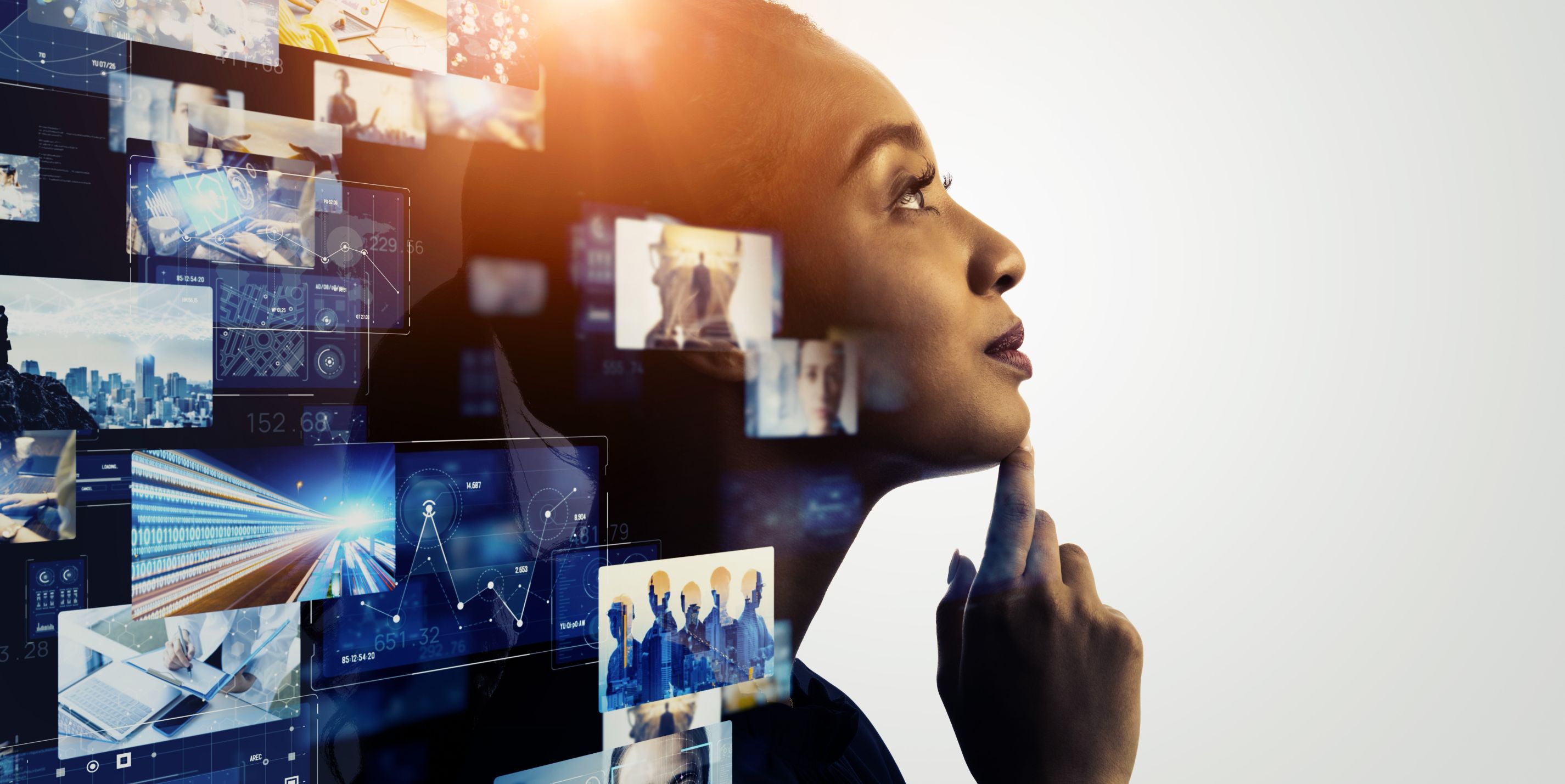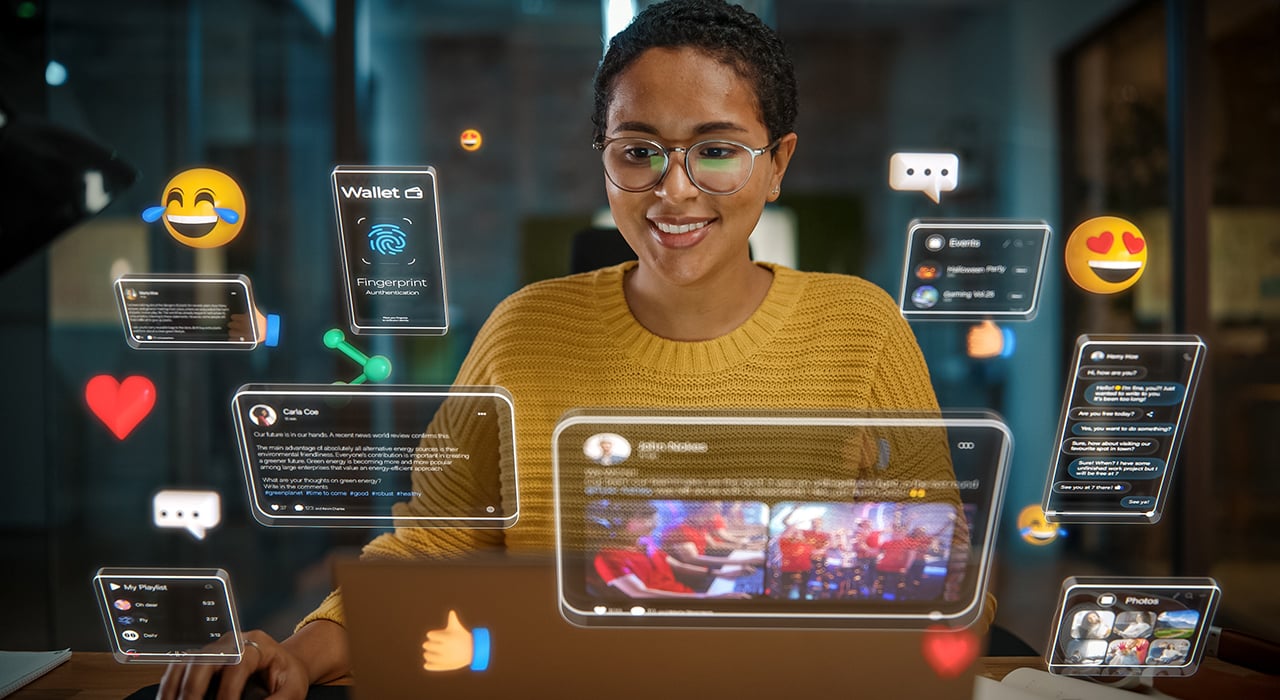News & Insights
Science Fiction to Science Fact: How TV and Film Influence the Technological Future

Dan Tull
Copywriter

Art X Life
The world of technology has been influenced by a myriad of factors. The core of any technological advancement is a problem that needs to be solved, whether this be out of convenience or necessity. However, sometimes technology becomes so intrinsically embedded in society that it takes something remarkable to change that (think along the lines of the long journey to electric vehicles).
Oscar Wilde believed that sometimes life imitates art, an idea that holds weight in the technology world. Something that we can all see since the advent of cinema and TV is the interesting effect of fictional technology inspiring real world results.
In 1968, Disney released a film called “The Love Bug”, which featured a Volkswagen Beetle named Herbie. Herbie could drive himself and was capable of independent thought. I imagine in 1968, this was quite the novelty. Can you imagine explaining to someone that not only would the future host self-driving vehicles, but they’d also feature artificial intelligence that surpasses the mind of Herbie himself??
Throughout TV and Film history there have been many examples of fictional technology later being shown to have hyper-jumped into reality. Sometimes it is a natural progression of an idea, for example the digital billboards and advertising in Blade Runner are the logical next step for a standard billboard, it doesn’t take a bio-engineered replicant humanoid to predict that. But sometimes it can be a bit more abstract, like 3D printing, smart watches, drones, and countless other science fiction tropes that once upon a time belonged exclusively to the far-fetched fictional realities they originated in. These innovations are not merely gimmicks, but significant disruptive technological advancements that have had a large scale impact on the markets within which they operate.
With all of this in mind, can we successfully use TV and Film as a basis to plot the technological future? The speed with which technology advances is exponential, and at this point suggesting that anything is impossible is a redundant statement.
I’ve given it some thought and looking back over the past ten years (give or take) of TV and Film, are there any standout examples of future-tech that could actually work? Are any of them realistic, and might we see them brought to life over the next decade?
Marvel-ous work: a Stark prediction
Since 2008, every year has seen the release of at least one Marvel blockbuster superhero film, a collective work known as the MCU. As time has gone on, these films have progressed from a man in a technological exo-suit into wild fantasy, but a running theme throughout them all is the idea of near-future technology that is more advanced than what the world currently possesses, but in a way that is mostly believable. Holograms, artificial intelligence and 3D printing are three areas that were shown in 2008s Iron Man, and now they are relatively common tools.
I want to point out a specific example of something I could see making its way from movie to reality. Whilst the MCU is full of incredible, physics defying technology, the concept that interests me on a practical level comes from a scene in 2012s The Avengers. In the aforementioned scene, Tony Stark (Iron Man) is able to seamlessly transfer information between a tablet computer and a gesture controlled holographic interface, all of which is supported by an AI personal assistant. Whilst he uses gestures to flick between files, he is openly speaking to his AI, requesting more information and working in an efficient manner. It is this integration between different technologies that I think will emerge over the next decade in a robust and powerful manner.
We have already seen attempts made to create the ultimate integrated smart home, with Google, Sonos, Amazon and others doing a good job. I think the final, missing ingredient is the human gestures. It may seem crazy right now, but then again so did the idea of talking to your speakers. Imagine walking into your home and being able to control everything with just your voice and your body. Open the blind? Sure, just point at them and gesture for them to open. Turn on the TV? Point and click. The concept of breezing through your home and being able to seamlessly control everything with minimal effort just seems like the obvious conclusion to the smart home.
The new home office
This also plays into what I see as the major advancements in technology being driven by the increased number of people now working exclusively from home. We need to be rethinking the home office setup. It isn’t always practical for people to have a facsimile of their office space in their bedroom. Maybe, with this technological breakthrough, the use of monitors and screens would become redundant and instead of needing to carve out a specific space in your home to work from, instead you can use a blank wall as your canvas to work from.
I type this from a laptop, which is at present the most efficient way I can think of to produce written content. We’ve all seen ChatGPT (and if you haven’t, check out our opinion on it), it isn’t a huge leap to combine it with a smart assistant and therefore allow users to dictate what they want to write. ChatGPT could easily tidy spoken thoughts into cohesive sentences. Creative spaces could become literally that, instead of often just being a room with a screen. It would also do away with the space limitations presented by screens.
I think that this is an incredibly likely progression that we will see in the next ten years. The pieces are all already in play, just individually. Whilst companies like Google and Amazon have the infrastructure in place to fairly easily produce this sort of technology, the real challenge here would be getting the people on board. Tech-consumers are amongst the most savvy, and if there was any reason to distrust the platform, or it were not fit for purpose in any way then it would quickly be demonised. However, seemingly impenetrable barriers, like smart assistants in the home, have been overcome and trust has been built with consumers that makes me think that this is an entirely possible task.
What do you think? Have you ever been watching a film or TV show and thought they were onto something? Let us know, we’d love to hear your thoughts. In the meantime, I posed this question to the team here at Crowd which you can read about in the second part next week.



